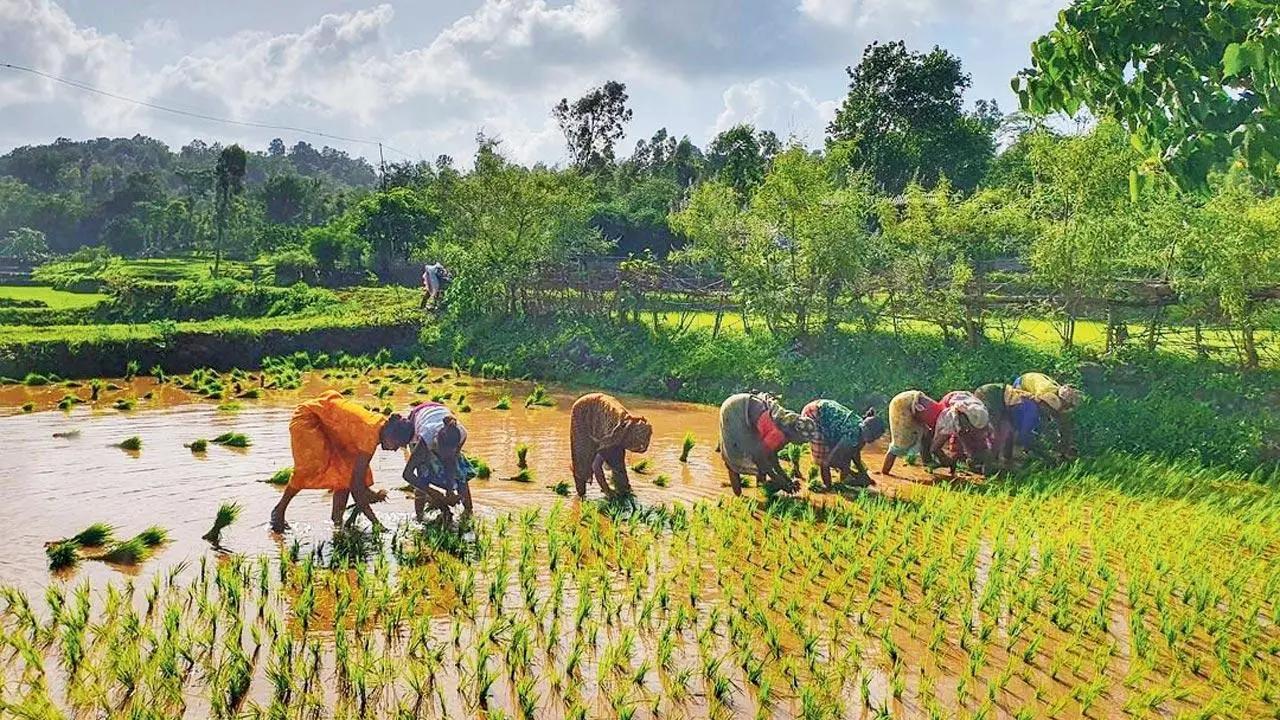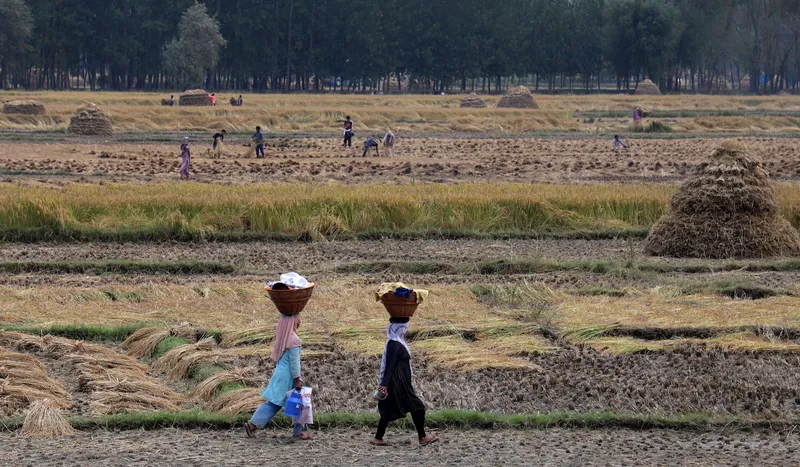Poonch, April 28: Farmers in Jammu and Kashmir are rushing to harvest their crops prematurely in light of escalating border tensions, particularly after the deadly Pahalgam terror attack on April 22. The attack, which killed 26 people, has sparked widespread fear and unrest in border areas.

Urgency in Harvesting Crops: “We Want to Be Prepared”

Local farmer Asghar Husain Shah from Gulpur Panchayat explained the situation, saying, “Nearby Panchayats like Karma, Kasaliya, Dawar, and Noorkote lie close to the border. Since the Pahalgam incident, our area has been on high alert. We are deeply saddened by what happened and strongly condemn the attack.”
Shah went on to explain that the situation in the area has become increasingly unstable. “We are currently harvesting crops because in times like these, anything can happen. We want to finish the harvest quickly so that if any situation arises, we won’t suffer major losses,” he added.
Fear Grips Farmers: “People Are Very Scared”
Another local farmer, Mushtaq, was seen alongside other villagers quickly harvesting corn. “What can one do if there is firing near the border? People here are working quickly to finish the harvest despite the growing tension. The situation is worsening day by day, and people are scared. Many have started harvesting prematurely, fearing for their safety,” he told reporters.
This fear has resulted in farmers deciding whether to save their crops or leave them for cattle fodder. The uncertainty is profound—many are opting for early losses rather than risking losing everything in potential border conflicts.
Community Leaders Condemn Terror Attack, Demand Strong Action
Khetrapal Sharma, Pradhan of Shri Sanatan Sabha, condemned the Pahalgam terror attack, stating, “People across the country and the world have condemned what happened in Pahalgam. Such terror attacks originating from across the border continue to disrupt life in Jammu and Kashmir.” Sharma added that the attack was particularly horrific as it targeted innocent civilians, irrespective of religion.
He further criticized Pakistan’s provocations, stating, “Pakistan continues to provoke India with repeated ambushes. What happened in Pahalgam was horrific—civilians were killed indiscriminately, without regard for whether someone was Hindu, Muslim, or Sikh. Every Indian wants Pakistan to face a strong response.”
Sharma also noted the heightened sense of fear in border areas. “People living along the border are terrified. They are rushing to complete the harvest quickly because they fear that at any moment, they could be targeted. The tension in the area is high, and everyone is fearful for their safety,” he said.
Weather-Related Challenges and Political Solidarity
In addition to the terror attack, Ramban district faced further hardships due to natural disasters. Heavy rains on April 20 led to landslides and flash floods, resulting in widespread destruction and blocking of the Jammu-Srinagar National Highway. At least three people, including two children, lost their lives in Bagahana village when two houses collapsed due to landslides.
PDP Chief Mehbooba Mufti highlighted the widespread impact on agriculture, particularly the damage to basmati rice and apple trees. “The government should compensate farmers for these losses,” Mufti demanded.
National Investigation Agency (NIA) Takes Action
The National Investigation Agency (NIA) has been stationed at the Pahalgam terror attack site since April 23, intensifying its efforts to gather evidence and question eyewitnesses. The Indian Army has also launched several search operations along the border to neutralize terrorists in the wake of the attack.
Political Unity and Calls for Justice
In a display of political unity, leaders from different parties joined an all-party meeting convened by Jammu and Kashmir Chief Minister Omar Abdullah to strongly denounce the Pahalgam terror attack. The leaders condemned the act of violence and expressed solidarity with the victims.
Conclusion
The aftermath of the Pahalgam terror attack has left farmers in Jammu and Kashmir scrambling to secure their crops while navigating the escalating border tensions. Amid this fear, the community remains hopeful for justice and a strong response to ensure their safety and protect their livelihoods.








